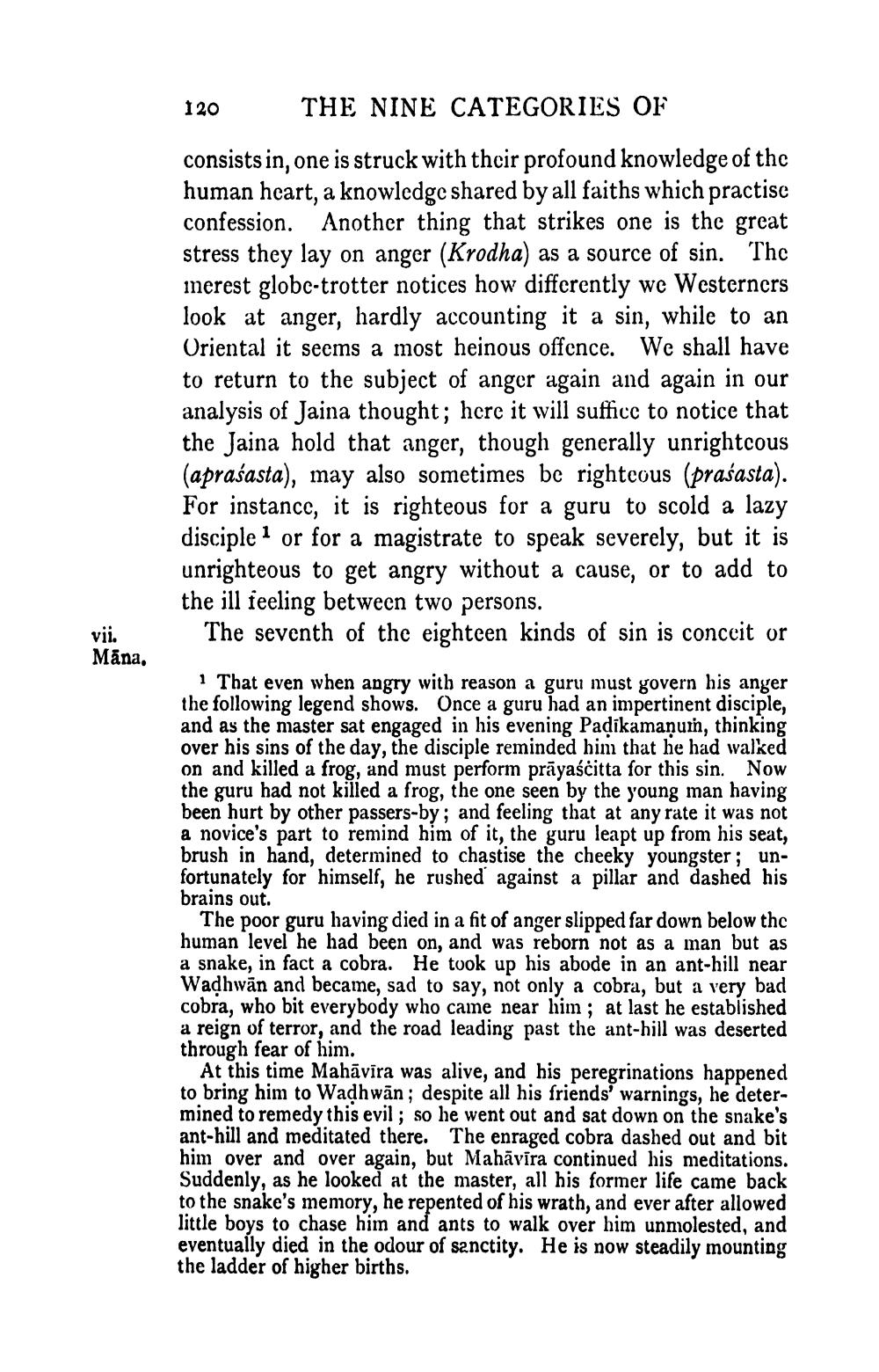________________
vii. Māna,
THE NINE CATEGORIES OF
consists in, one is struck with their profound knowledge of the human heart, a knowledge shared by all faiths which practise confession. Another thing that strikes one is the great stress they lay on anger (Krodha) as a source of sin. The merest globe-trotter notices how differently we Westerners look at anger, hardly accounting it a sin, while to an Oriental it seems a most heinous offence. We shall have to return to the subject of anger again and again in our analysis of Jaina thought; here it will suffice to notice that the Jaina hold that anger, though generally unrighteous (aprasasta), may also sometimes be righteous (prasasta). For instance, it is righteous for a guru to scold a lazy disciple or for a magistrate to speak severely, but it is unrighteous to get angry without a cause, or to add to the ill feeling between two persons.
The seventh of the eighteen kinds of sin is conceit or
120
1 That even when angry with reason a guru must govern his anger the following legend shows. Once a guru had an impertinent disciple, and as the master sat engaged in his evening Padikamanum, thinking over his sins of the day, the disciple reminded him that he had walked on and killed a frog, and must perform prayaśċitta for this sin. Now the guru had not killed a frog, the one seen by the young man having been hurt by other passers-by; and feeling that at any rate it was not a novice's part to remind him of it, the guru leapt up from his seat, brush in hand, determined to chastise the cheeky youngster; unfortunately for himself, he rushed against a pillar and dashed his brains out.
The poor guru having died in a fit of anger slipped far down below the human level he had been on, and was reborn not as a man but as a snake, in fact a cobra. He took up his abode in an ant-hill near Wadhwan and became, sad to say, not only a cobra, but a very bad cobra, who bit everybody who came near him; at last he established a reign of terror, and the road leading past the ant-hill was deserted through fear of him.
At this time Mahāvīra was alive, and his peregrinations happened to bring him to Wadhwan; despite all his friends' warnings, he determined to remedy this evil; so he went out and sat down on the snake's ant-hill and meditated there. The enraged cobra dashed out and bit him over and over again, but Mahavira continued his meditations. Suddenly, as he looked at the master, all his former life came back to the snake's memory, he repented of his wrath, and ever after allowed little boys to chase him and ants to walk over him unmolested, and eventually died in the odour of sanctity. He is now steadily mounting the ladder of higher births.




